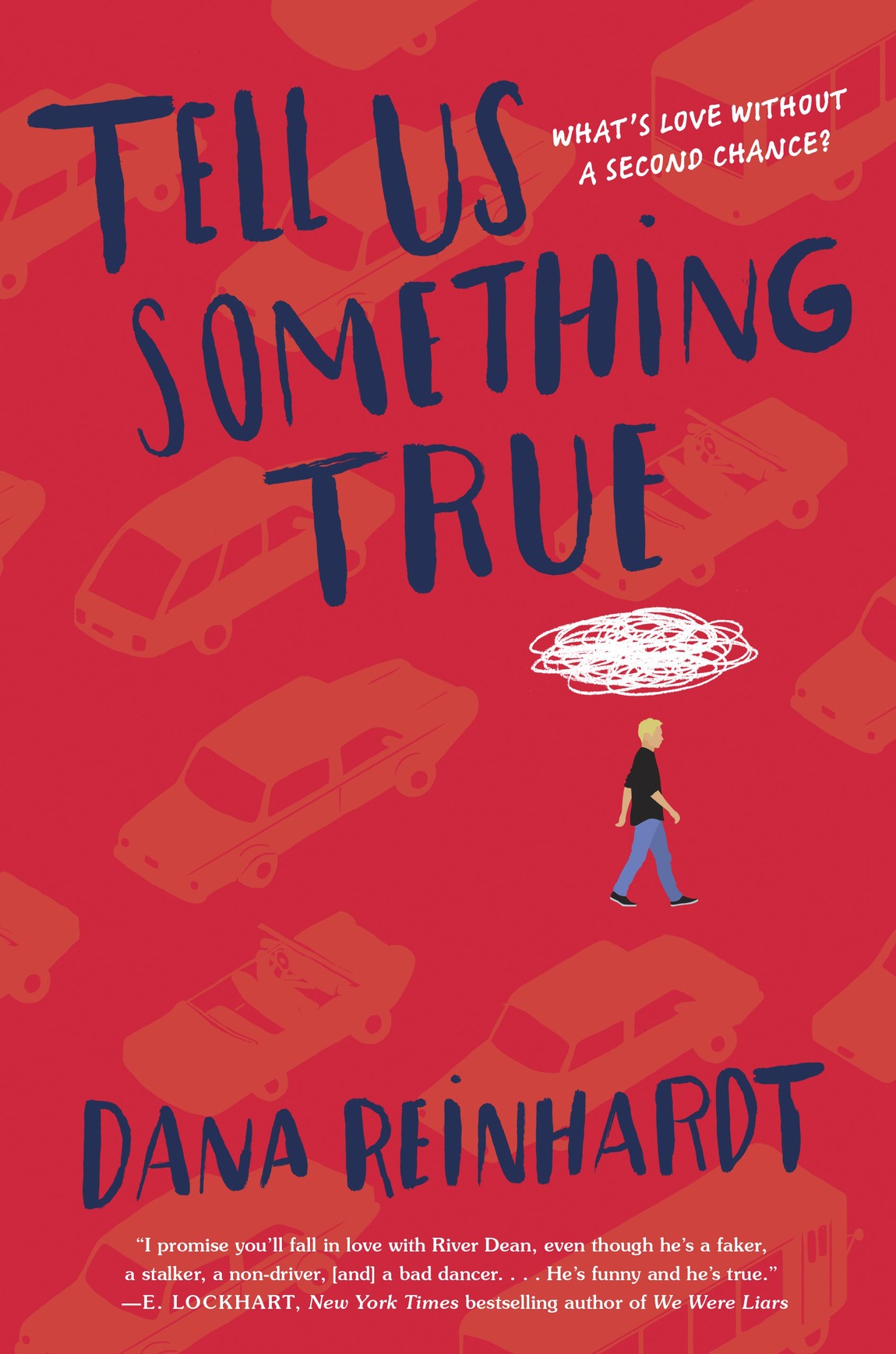
Tell Us Something True
فرمت کتاب
ebook
تاریخ انتشار
2016
Lexile Score
690
Reading Level
3
ATOS
4.4
Interest Level
9-12(UG)
نویسنده
Dana Reinhardtشابک
9780307975829
کتاب های مرتبط
- اطلاعات
- نقد و بررسی
- دیدگاه کاربران
نقد و بررسی

Starred review from March 28, 2016
Once again, Reinhardt (We Are the Goldens) shows a deep understanding of adolescent attitudes and emotions in this novel tracing 17-year-old River’s recovery from a broken heart. The day River’s girlfriend, Penny, breaks up with him, he feels stranded in more ways than one. Without Penny to give him a ride home, he walks the streets alone, and that’s how he discovers the sign advertising “a second chance.” Intrigued, River joins the Second Chance group’s meeting, thinking he has found kindred spirits, but it turns out that the group’s members are struggling with various addictions. Rather than leave, River pretends he has a drug problem, a mistake readers will recognize as the beginning of his downfall long before the lie creates a mess of trouble. More than preaching the virtue of honesty, the book focuses on River’s growing self-awareness, his coming to terms with his failed relationship, his too-passive nature, and how his father’s abandonment has affected him. Intelligent and ironic, the narrative resounds with honesty, even as River himself is quite successful at inventing little white lies. Ages 14–up. Agent: Douglas Stewart, Sterling Lord Literistic.

April 1, 2016
In an ill-advised effort to set his life straight, 17-year-old River Dean fakes a weed addiction and joins a support group for teens. Senior year takes a sour turn for the white teen. Penny Brockaway ends their relationship during a boat trip for his lack of self-reflection. "You just follow along and do what you think you're supposed to." Wandering Los Angeles in a post-breakup daze, River stumbles across a sign: A Second Chance. It refers him to a self-help group, where addictions range from shoplifting to Molly. Believing it'll benefit him in his case with Penny, River feigns an addiction to enlist in the group. "I was taking action. I was doing something." Readers may often find it hard to accept or even like River. Though an absent-father subplot unearths some pathos, his manipulation of the group, obsession with Penny, and obliviousness to his own privilege crush any goodwill. Aside from the loss of Penny, River attempts to reconcile with his estranged friends, whom he's previously neglected. On top of that, he must get his driver's license, since "everybody knows that nobody walks in LA." As he explores a new relationship with a girl from the support group and remakes his life, he finds it difficult to balance his lies. "Penny was right about me. I didn't think about things," he realizes, a valuable epiphany that nevertheless exposes the story's weakness. The novel ends in a buoyant mood, perhaps not entirely earned. (Fiction. 14-18)
COPYRIGHT(2016) Kirkus Reviews, ALL RIGHTS RESERVED.

May 1, 2016
Gr 9 Up-After River is unceremoniously dumped by his girlfriend on a paddle boat in the middle of a lake, a chance encounter with a Second Chance support group for teens with addictions sends him into a torrent of lies that spiral out of control. Feeling the need for a reason to return, he invents a marijuana addiction, to the suspicion of some members. Although the rules of the support group specifically state that members are not allowed to date, River falls for Daphne, a Latina struggling with her shoplifting addiction. Despite his research into pot addiction (using the blog of a pot-addicted teen to steal his stories at meetings), River must eventually break the real story to Second Chance and to Daphne, which results in unfortunate yet realistic consequences. River has an authentic, funny, and unpredictable voice; although his actions are questionable, they are ultimately rooted in his need to find connections with others. The unique characteristics of Los Angeles neighborhoods, from downtown to Westside, are briefly sketched. River's relationships with his mother and stepfather are genuine yet refreshingly positive, and his interactions with his eight-year-old stepsister are poignant. The culture of group therapy, with its frequent instances of humor and pathos, is aptly captured. An inclusion of a secondary male character with bulimia adds awareness for teens.
Copyright 2016 School Library Journal, LLC Used with permission.

May 15, 2016
Grades 8-11 River is thrown into a tailspin when his girlfriend, Penny, breaks up with him. Life was easy with Penny: he was so madly in love, he just followed Penny's agenda. He never even learned to drivewhy bother when Penny had a car? When Penny decides she needs someone with a little more, well, drive, readers might sympathize with her. But so, too, will they feel charmed by River's spot-on narration, blunt self-appraisal, and wry commentary on high school and family life. Floundering and heartbrokenand now walking everywhereRiver wanders in on a Second Chance session, a storefront support group that, it turns out, serves students with addiction issues. But the kids there intrigue him, especially a girl named Daphne, and River makes up a story to justify joining their group. A fairly contrived plot twist ramps up the action later, but this is more than a lively rom-com with smart dialogue. Reinhardt constructs a character who, haltingly, rebuilds himself in believable ways as he confronts family trauma, lost love, and growing up.(Reprinted with permission of Booklist, copyright 2016, American Library Association.)

























دیدگاه کاربران